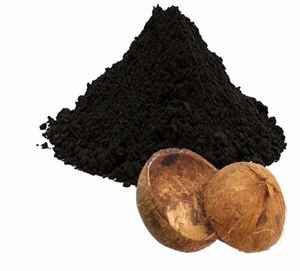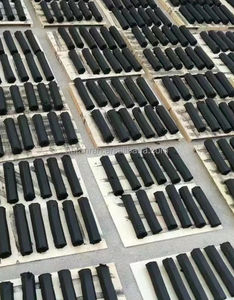Introduction to Charcoal Type
Charcoal type materials have been prized for their versatility and effectiveness across various applications. Whether in cooking, filtration, or as a component in various industrial processes, coal types offer robust solutions that resonate with both commercial and personal use. Defined by their unique structural properties, charcoal types serve a myriad of functions that make them indispensable in everyday products and industrial practices.
Types of Charcoal Type
- Activated Charcoal: This type undergoes processes to increase its porosity, enabling it to absorb toxins and impurities effectively. It's widely used in water purification systems and health-related products.
- Binchotan Charcoal: A premium Japanese charcoal known for its high purity and efficiency. It's commonly used in cooking due to its unique flavor and ability to retain heat.
- Lump Charcoal: Made from pure wood, this type is used in grilling and barbecuing, providing a natural smoky flavor. It lights quickly and burns hotter than briquettes.
- Charcoal Briquettes: Compressed charcoal powder, often mixed with additives, designed for uniform burning and easy lighting, widely used in outdoor grilling.
Applications of Charcoal Type
- Cooking and Grilling: Charcoal types like lump charcoal and briquettes provide high heat and enhanced flavors in grilling applications.
- Activated Charcoal in Health and Beauty: Used in toothpaste and skincare products for its detoxifying properties, activated charcoal gains immense popularity in health and beauty solutions.
- Air and Water Filtration: Charcoal types are extensively applied in filters, removing contaminants and improving quality, making them essential for water and air purification systems.
- Art and Craft: Charcoal sticks are popular among artists for sketching and creating rich textures, emphasizing their versatility in creative realms.
Features of Charcoal Type
- High Absorption Capacity: Charcoal type materials excel in adsorbing impurities and unpleasant odors, making them valuable in filtration systems.
- Natural Composition: Generally produced from natural sources, these charcoal types exhibit environmentally friendly characteristics.
- Varied Particle Sizes: Depending on the application, charcoal types are available in different textures and sizes, enhancing usability across different fields.
- Heat Retention: Certain charcoal types display impressive heat retention properties, improving efficiency in cooking and industrial processes.
Advantages of Charcoal Type
- Eco-Friendly: Charcoal products are often sustainable and biodegradable, aligning with green practices and environmental conservation.
- Cost-Effective: With appropriate storage and management, charcoal types can provide long-lasting utility, making them an economical choice for consumers and businesses alike.
- Multipurpose Use: The versatility of various charcoal types means they can serve multiple functions across different industries, enhancing their appeal.
- Enhanced Taste: In culinary settings especially, cooking with certain charcoal types adds distinct flavors to food, elevating the overall dining experience.


















































